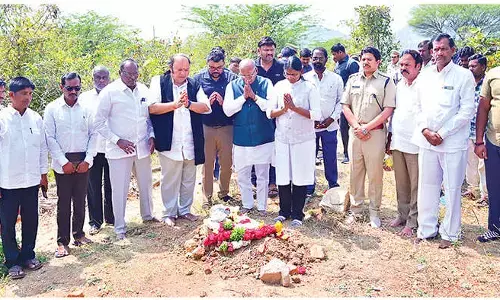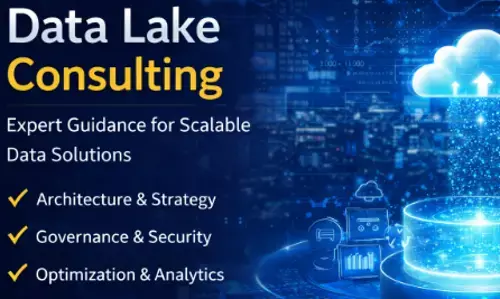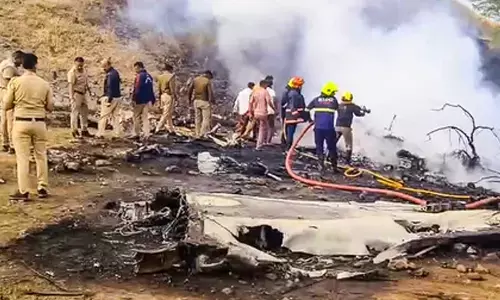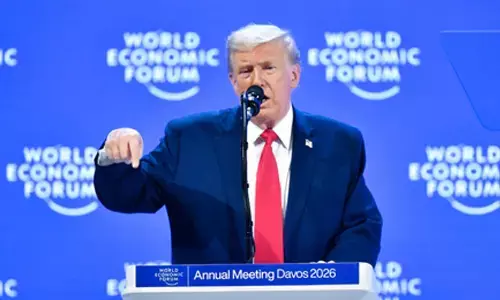Chidambaram's protection from arrest extended till September 5
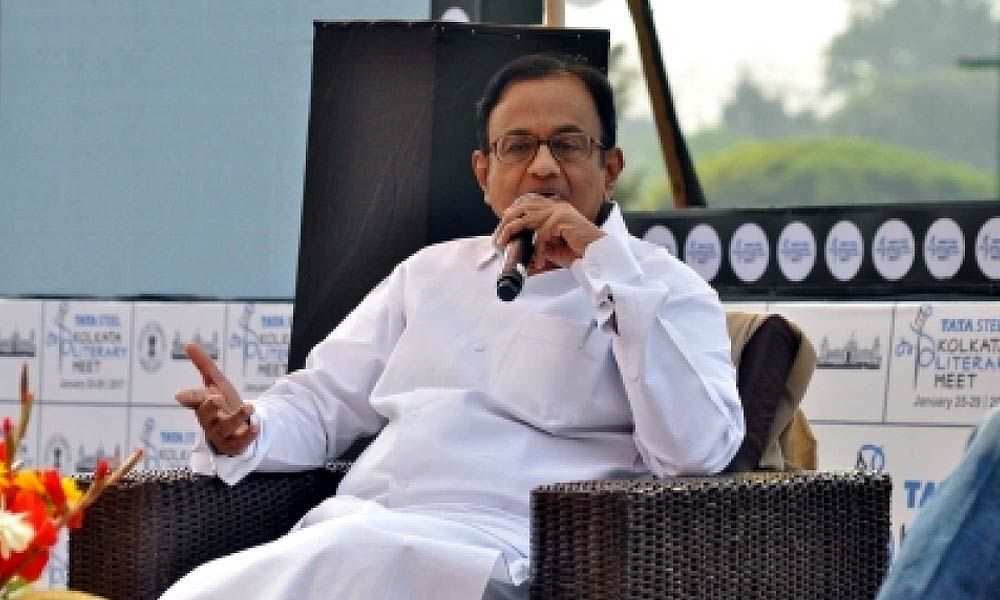
The Supreme Court will pronounce its order on September 5 on the anticipatory bail plea of former Finance Minister P. Chidambaram in a case being probed by ED in INX Media scam
New Delhi: The Supreme Court will pronounce its order on September 5 on the anticipatory bail plea of former Finance Minister P. Chidambaram in a case being probed by ED in INX Media scam and directed that documents linked to the case be submitted under an authenticated sealed cover.
Chidambaram's CBI custodial remand is ending on Aug 30. When the court also ordered that his petition against CBI's remand be heard on Monday, his lawyers contended that this too should be extended till Monday, but the court refrained from making any comment.
Solicitor General Tushar Mehta said that such a submission should be made before the CBI judge on Friday when Chidambaram's CBI remand will end and he will be produced before the court. However, the court refused to comment on this and extended Chidambaram's protection from arrest by ED in INX Media case till September 5.
In yet another twist at the fag-end of the hearing, the court directed the ED to submit its documents connected with the case in a sealed cover and asked the probe agency to ensure the seal is authenticated.
The agency will have to submit these documents in a day. Chidambaram's lawyers insisted that ED produce the transcripts of his questioning held on December 19, 2018, and January 1 & 21, 2019. Mehta contested, stating that investigations have moved beyond the time-period concerned, and in fact, the case is an advanced stage at the moment.
The court then directed the ED to submit documents in an authorised seal cover. Mehta had consistently maintained that documents connected to the case can be submitted to the court instead of the accused, as it would jeopardize the investigations.
Chidambaram's lawyers referred to it as an unfair process, which denies their client a fair opportunity to defend himself.
Earlier in the day, Mehta told the court that Chidambaram's plea to see the evidence before it is placed before the court will adversely affect several cases involving economic offenders and terror funding.
He contended that if the court accepts Chidambaram's plea, then it is bound to adversely affect other cases, including those of Vijay Mallya, Mehul Choksi, Nirav Modi, Shardha chit fund, terror funding and others.
"Chidambaram's submission to confront him with the evidence before the same is placed before the court is preposterous. It will lead to exposing evidence and witnesses in similar cases at an investigation stage," Mehta submitted before the court.
He further argued that at the pre-complaint stage the prosecution is entitled to oppose bail based on material in its possession, and whether the accused's reply to its queries was evasive or not, is a decision within the ambit of the probe agency.
Mehta said if the evidence was shown to the accused, then he will immediately erase the details of the money trail. He referred to Chidambaram as an individual having resources and knowledge on the issues.
Maintaining the secrecy of the material in possession of the agency is vital; Mehta said, adding it is best to confront the accused with evidence when he is in custody.
Arguing on the jurisdiction of the top court, Mehta said the court cannot be created as a regular court entertaining the appeal of the orders of the high courts, lower courts, and magistrates. "Supreme Court is meant to lay down the law," stated Mehta.
Mehta also justified the High Court's observation that the allegations against Chidambaram are grave.
"The quantum of punishment is no measurement of gravity of the offence. What is relevant is the impact of the offence on society and the nation... Offences against the economy of the country... Economic offences are the gravest of offences," contended Mehta.
Mehta dismissed Chidambaram's lawyers' argument that the alleged transaction took place in 2007-08 and that PMLA provisions, under which he is charged, were introduced in 2009. He informed the court that the offence has continued to date, and the money acquired, following these corrupt transactions, eventually helped Chidambaram acquire property and further launder.
On the retrospective effect of PMLA, Mehta argued that Section 8 of PMLA, 2002 was in the statute at the very inception. Therefore, there is no retrospective imposition of charges on Chidambaram.
He told the court under specific sections of the Act that it is clearly held that those who assist or play an active role in shielding the laundered money technically are also guilty of money laundering.


